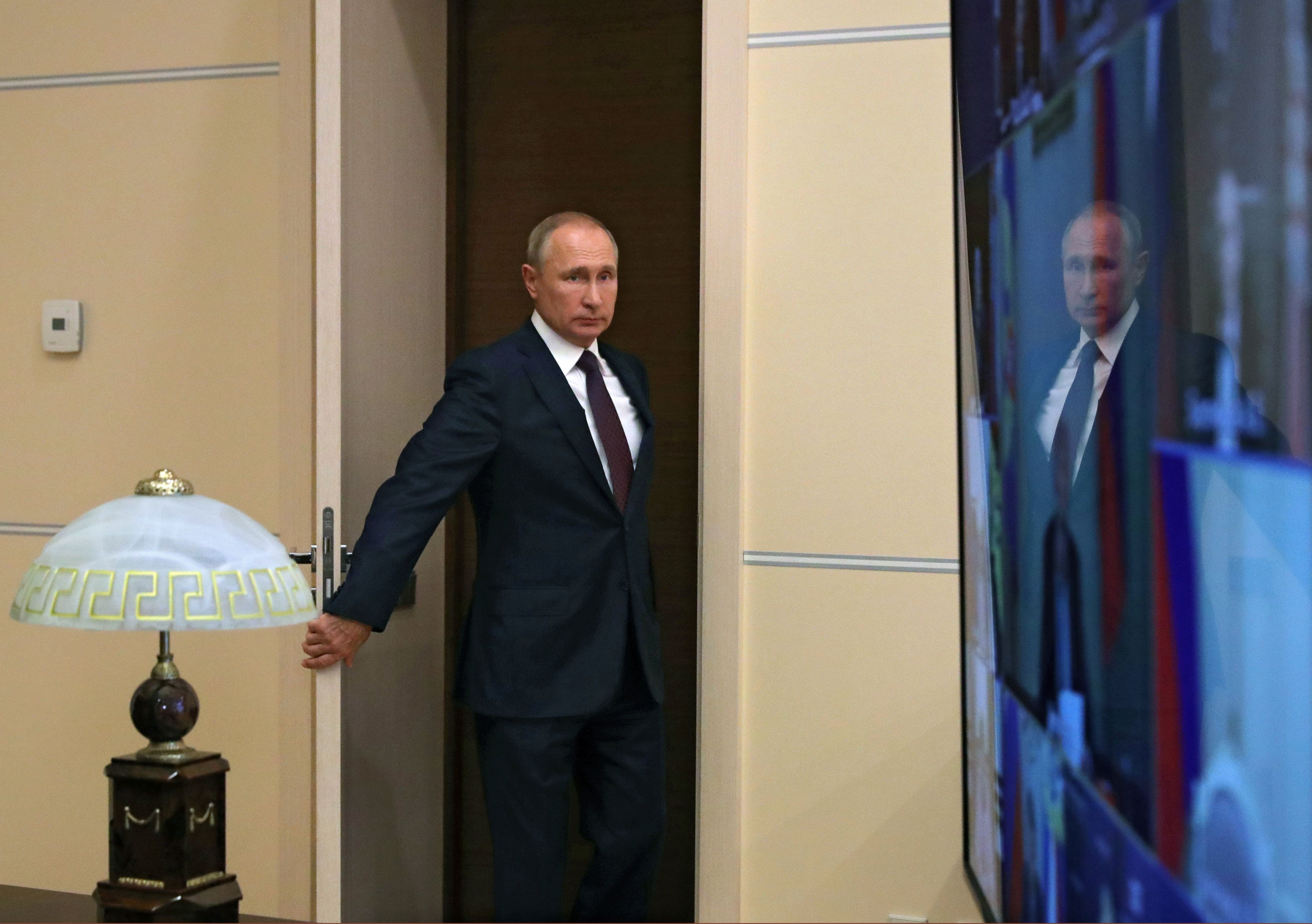At first glance, it's been a tumultuous few weeks for Russia's president Vladimir Putin.
There have been large anti-Kremlin protests in Russia's Far East. Putin critic Alexei Navalny has survived an assassination attempt that many now blame squarely on Russia's president. Turmoil in neighboring Belarus reminds many of the troubles Russia faced six years ago in Ukraine.
Look more closely, and Putin is sitting prettier than you'd think.
Start with Navalny. Putin is widely accused of ordering, or agreeing to, the murder of Alexei Navalny. And, yes, Navalny is now awake and surrounded by smiling family in a German hospital. But German Chancellor Angela Merkel announced on September 2 that Navalny was poisoned with Novichok, a nerve agent and chemical weapon available only to state intelligence services. It's not a weapon designed to deceive. And the purpose of the attack was probably less to kill Navalny than to intimidate all of Putin's critics by demonstrating what his government is willing to do. In that sense, it's mission accomplished.
Now look at the results of last week's Russian local elections.United Russia, the ruling party that Russians identify with Putin, lost its legislative majority in a couple of provinces, including Tomsk, where Navalny was poisoned. Western headlines note that pro-Navalny candidates won some seats on city councils.
But United Russia claimed victory in all 18 gubernatorial elections in which it competed, and its candidates won with higher vote margins than in elections last year. Did the coronavirus allow election-tampering far from the prying eyes of international observers? It's possible. That won't change the result.
Speaking of the virus, add the positive news for Russia's vaccine. On August 11, Putin announced that Russia had become the first country to approve a COVID-19 vaccine, which was given the name "Sputnik V" to remind the world that the Soviet Union was first to put a man in orbit. Eyes rolled in many countries as experts, suspecting a Soviet-style propaganda campaign, pointed to doubts about the vaccine's testing process.
But then the peer-reviewed international medical journal The Lancet reported on September 4 that in early phase trials of Sputnik V, it had indeed "induced a strong immune response" in the 76 people who participated with no adverse effects. There are still plenty of questions about the vaccine, but the headlines that most will see are that more countries are now lining up to pay for a jab. This week, India became the latest to open its wallet. From Mexico to Kazakhstan and Saudi Arabia to Vietnam, Belarus, and Brazil, more countries are showing an interest in Sputnik V.
Finally, there's the ongoing turmoil in Belarus. Protests there threaten the two-decade rule of Alexander Lukashenko, a man who has long irritated Moscow but who has integrated his country into an economic union with Russia that Putin hopes to deepen.
For the moment, however, Russian economic (and potentially military) support has been enough to keep Lukashenko in power. Belarus is much smaller and easier to manage than Ukraine, and it's now clearer than ever that Lukashenko owes his political survival directly to Putin.
Not a bad thing for a Russian president who relishes control.
- Russian military escalation against Ukraine worries Europe - GZERO Media ›
- Should NATO embrace Ukraine? - GZERO Media ›
- Should NATO embrace Ukraine? - GZERO Media ›
- Russian military escalation against Ukraine worries Europe - GZERO Media ›
- What the EU will — and won’t — do about Belarus - GZERO Media ›
- Trump's call with Putin is big win for Kremlin - GZERO Media ›
More For You
For many in Iran, it’s a waiting game for how long Ayatollah Khamenei has left to live.
Most Popular
In a 30-minute call on Thursday, President Donald Trump reportedly told Ukrainian President Volodymyr Zelensky he wants to end the war with Russia as soon as possible — aiming for a deal by summer, but ideally within weeks.
Former British ambassador to the U.S. Peter Mandelson leaves his residence after he was released following his arrest by London police on Monday on suspicion of misconduct in public office, following the release of U.S. Justice Department files linked to the late financier and convicted sex offender Jeffrey Epstein, in London, Britain, February 26, 2026.
The ghost of Jeffrey Epstein continues to haunt the world.
Think you know what's going on around the world? Here's your chance to prove it.
